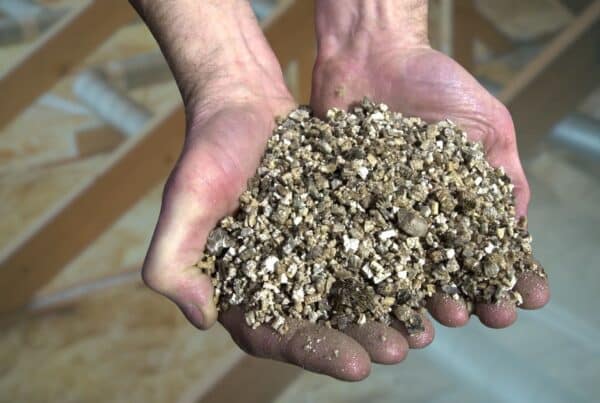
As a first-time Massachusetts home buyer, it’s exciting and fast-moving. There’s a lot more involved than picking the right location and getting pre-approved for a mortgage. Many homes in the state—especially older ones—come with hidden challenges, and the competitive market can push buyers into making rushed decisions without fully understanding what they’re getting into.
Knowing what to expect before you start house hunting is so important. From common defects to negotiating the price tag, this guide will make sure you know what you need to move forward comfortably.
1. Massachusetts Housing Market Basics
Massachusetts offers a mix of historic homes, suburban developments, and newer construction, but the market can be challenging for a first-time home buyer due to high demand and rising prices.
Here are key things to keep in mind!
- Home prices vary widely. The median home price in Massachusetts is over $600,000, but costs fluctuate significantly based on location. Boston and Cambridge have some of the highest prices, while western and central Massachusetts tend to be more affordable.
- Bidding wars are common. Low inventory often leads to multiple-offer situations, meaning you may need to offer over the asking price in competitive areas.
- Seasonal timing matters. Spring and summer are the busiest times for homebuying, with more listings but also more competition. Fall and winter may provide opportunities to negotiate better deals.
- First-time homebuyer programs can help. Programs like MassHousing, ONE Mortgage, and FHA loans offer reduced down payments and lower interest rates for qualified buyers.

2. Common Issues Found in Massachusetts Homes
Massachusetts has a large number of older homes, many built before modern building codes were in place. These properties often come with maintenance challenges that first-time buyers should be aware of.
- Foundation cracks and settling – Many homes, especially in areas with extreme freeze-thaw cycles, develop cracks that may indicate structural issues.
- Roof damage from snow and ice – Ice dams are a common problem in New England, leading to leaks and water damage.
- Outdated electrical and plumbing – Older homes may have knob-and-tube wiring, lead pipes, or inefficient plumbing that requires updates.
- Moisture problems and mold – High humidity, poor drainage, and aging materials can lead to hidden mold and rot, especially in basements and attics.
- Pest infestations – Termites, carpenter ants, and rodents are common in Massachusetts, particularly in wooded areas and historic homes.
These problems aren’t necessarily deal-breakers, but they should be identified by an expert before finalizing a purchase.
3. What a Home Inspection Covers (and Why It Matters)
A home inspection is one of the most important steps in the buying process. It helps identify problems that could cost thousands in repairs down the road.
- Roof and attic – Checking for missing shingles, leaks, and ventilation issues.
- Foundation and structure – Looking for cracks, shifting, or signs of water intrusion.
- Plumbing and electrical systems – Assessing pipe condition, water pressure, wiring safety, and electrical panels.
- Heating and cooling systems – Evaluating furnaces, boilers, air conditioning, and insulation.
- Appliances and major systems – Ensuring water heaters, sump pumps, and fireplaces are in good working order.
In any market, negotiation power is valuable for requesting repairs or price reductions before closing on a home—an inspection is how you get it.
4. Special Considerations for New England Homes
Massachusetts homes have unique characteristics that buyers should consider before making a purchase.
- Historic homes have charm—but also challenges. Many homes in Massachusetts are over 100 years old, featuring original woodwork and antique details. However, they may also have lead paint, asbestos, inefficient drainage, and outdated plumbing that require costly updates.
- Septic systems and well water are common. Many rural and suburban homes rely on private septic systems and wells instead of city water and sewer lines. Buyers should schedule separate septic and water tests to ensure the systems are functioning properly.
- Oil heating vs. gas heating. Some older homes still use oil heating, which can be more expensive and less efficient than natural gas. Converting can be costly but may save money in the long run.
- Snow and ice create maintenance concerns. Heavy snow loads, frozen pipes, and ice dams can cause damage if a home isn’t properly insulated or maintained. Homes with steep roofs, heated gutters, or proper drainage are better equipped to handle harsh winters.
If you’re aware of these regional factors, you can plan for future maintenance and costs.
5. Hidden Costs of MA Homeownership
Many first-time buyers budget for their mortgage but forget to account for additional costs. Some common expenses that can add up:
- Property taxes. Massachusetts has some of the highest property taxes in the country. Rates vary by town and can significantly impact your monthly budget.
- Homeowners insurance. Factors like flood zones, older homes, and location can increase insurance premiums beyond what many buyers expect.
- HOA fees. If you’re buying a condo or a home in a managed community, monthly HOA fees can range from $200 to over $1,000 depending on location and amenities.
- Winter heating costs. Heating bills can be high during Massachusetts winters, especially in older, less insulated homes. Budgeting for energy-efficient upgrades can help lower costs.
Setting aside an emergency fund can help you handle unexpected repairs and maintenance expenses.

6. How to Make a Smart Offer and Negotiate After Inspection
Once you find a home, making an offer involves more than just agreeing to the asking price. A home inspection can provide negotiation leverage if issues are uncovered.
- Request seller credits or repairs. If the inspection reveals problems like a failing roof or outdated electrical, you can ask the seller to cover repairs or provide closing cost credits.
- Know when to walk away. Some issues—such as major foundation problems, severe mold, or extensive pest damage—may not be worth the cost of repairs.
- Be prepared for competition. If you’re in a multiple-offer situation, waiving minor repairs may help strengthen your offer, but be cautious about skipping the inspection.
Other Recommended Maintenance
Regular maintenance helps protect your home and prevent costly repairs. Some key tasks include:
- Seasonal roof and gutter checks to prevent leaks and ice damage.
- Sealing drafts and upgrading insulation to save on energy bills.
- Inspecting and maintaining your foundation to prevent water intrusion.
- Scheduling routine home inspections to catch small issues before they become major problems.
Proactive maintenance helps extend the life of your home’s major systems and protect your investment.
When to Call a Professional
Some home issues require an expert’s eye, and a first-time home buyer may miss early warning signs of problems (common in many Massachusetts areas).
If you notice any of these concerns—before or after buying a home—it’s time to call a professional:
- Cracks in the foundation or sagging floors that could signal structural issues.
- Persistent moisture, musty smells, or visible mold in basements or attics.
- Electrical problems such as flickering lights, buzzing outlets, or outdated panels.
- Pest infestations like termites or rodents that can cause serious damage.
- Septic or well water issues that could impact health and safety.
Whether you’re considering a home purchase or just moved in, an expert evaluation can provide clarity for the next steps.
Conclusion
As a first-time home buyer in Massachusetts, understanding the local market, potential home issues, and long-term maintenance needs can help you make the best choices.
A professional home inspection is one of the best ways to protect your investment. Alpha Building Inspections provides thorough, expert evaluations to help first-time buyers make informed decisions. Schedule your inspection today and move forward with confidence.



